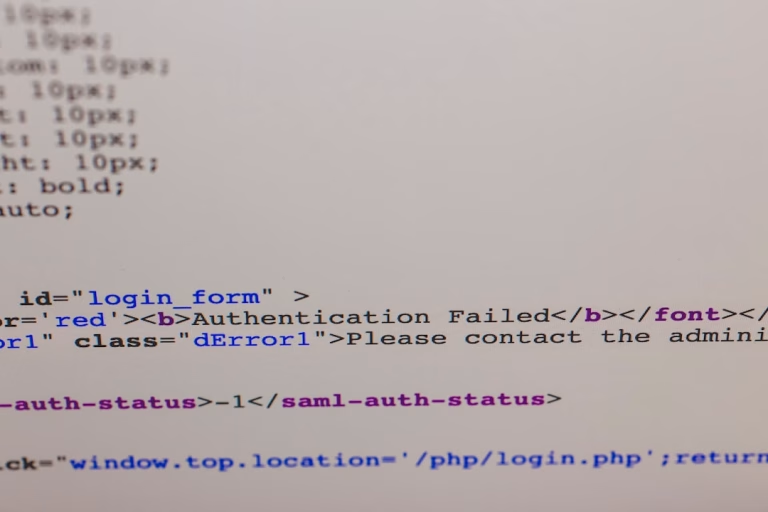Transitioning Into a Software Career from Another Industry
So, you’ve decided to make a big leap—transitioning into a software career from another industry. Maybe you’ve been in finance, healthcare, teaching, or another field entirely, but something about tech has drawn you in. Trust me, I’ve been there. It’s both exciting and nerve-wracking to pivot your career into something new, especially something as dynamic and fast-paced as software development.
Let’s chat about what this transition really looks like, the challenges you might face, and, most importantly, how to overcome them. I’ll sprinkle in some stories from my journey and others I’ve known to help guide you through this process. By the end of this post, I hope you’ll feel more confident and ready to dive headfirst into the world of software.
Why Consider a Career in Software?
First things first, why software? What’s so appealing about this industry that makes people from all walks of life want to jump in? For me, it was a combination of the creative problem-solving aspect and the potential for growth. I was working in marketing, feeling a bit stagnant, when I realized that tech was not just a trend, but the future. I wanted in.
Software development is like this incredible puzzle where every day, you get to build something new. It’s challenging, yes, but there’s something so satisfying about creating a program or an app that people use in their daily lives. Plus, the job market is booming. According to the U.S. Bureau of Labor Statistics, employment of software developers is projected to grow 22% from 2020 to 2030, much faster than the average for all occupations .
The Flexibility of Tech Careers
Another major draw is the flexibility. Whether you’re into front-end design, back-end development, data science, or even cybersecurity, there’s a niche for you. You don’t have to be a math whiz or a computer science major to succeed in software. In fact, many successful developers started with no coding experience at all. I remember a friend who used to be a high school English teacher—now she’s a kick-ass full-stack developer at a startup. Her secret? She found her niche in developing educational apps, which leveraged her teaching background.
The Challenges of Transitioning
Now, let’s talk about the elephant in the room—the challenges. Transitioning to a software career isn’t all sunshine and rainbows. But hey, if it were easy, everyone would do it, right?
Learning New Skills
The most obvious challenge is learning the technical skills. Coding, debugging, understanding algorithms—it’s a lot. When I first started, I felt like I was trying to learn a new language, which in a way, I was. If you’re coming from a non-technical background, this can be overwhelming. But don’t worry, it’s entirely doable. There are tons of resources out there, from coding bootcamps to online courses on platforms like Coursera, edX, and Udemy.
One tip? Start with the basics. I started with HTML and CSS, which are the building blocks of web development. They’re relatively easy to grasp and give you a tangible sense of accomplishment when you see your first webpage come to life. Once you’ve got those down, move on to more complex languages like JavaScript or Python.
Imposter Syndrome
Another big hurdle is imposter syndrome. I can’t tell you how many times I’ve heard someone say, “I’m not smart enough for this,” or “I’m too old to start something new.” Heck, I’ve said it myself. But here’s the thing: everyone feels like an imposter at some point. The key is to push through it.
Remember, no one knows everything, and the best developers are the ones who are constantly learning. I once worked with a senior developer who had been in the industry for over 15 years. Even he would sometimes struggle with new technologies or bugs. His advice? Don’t be afraid to ask questions, no matter how basic they seem. The tech community is incredibly supportive, and there’s always someone willing to help.
Balancing Your Current Job with Learning
If you’re transitioning while still working in your current job, time management becomes crucial. I remember those nights when I’d come home after a long day, only to spend a few hours learning to code. It’s tough, but setting a consistent schedule helps. Dedicate a few hours each day or on weekends to learning. Treat it like a second job because, in a way, it is.
Some people choose to quit their jobs and dive into learning full-time, often through intensive bootcamps. This route is faster, but not everyone has that luxury. If you’re learning part-time, give yourself grace. It might take longer, but steady progress is still progress.
Strategies for a Successful Transition
Alright, now that we’ve covered the challenges, let’s talk about strategies to make your transition smoother.
Leverage Your Existing Skills
One of the biggest misconceptions is that you’re starting from scratch. That’s not true! You likely have a wealth of experience from your previous industry that can be incredibly valuable in software.
For example, if you were in finance, your analytical skills and attention to detail will be assets in software development. If you were a teacher, your ability to break down complex concepts can make you a great communicator in a team setting. The key is to identify these transferable skills and highlight them in your resume and during interviews.
When I transitioned from marketing, I found that my experience in understanding user behavior and data analysis was incredibly useful, especially in front-end development and UX design. I could empathize with users and build interfaces that were not just functional but also intuitive.
Network, Network, Network
Networking is vital in any career, but it’s especially important when you’re transitioning into a new field. Attend industry meetups, join online communities like GitHub, Stack Overflow, or LinkedIn groups, and don’t be afraid to reach out to people who are already in the industry.
When I was starting out, I made it a point to attend local tech meetups. Initially, I felt out of place, surrounded by people who seemed to know so much more than I did. But over time, I started making connections. These relationships led to job leads, mentorship opportunities, and even collaboration on small projects. One of my most valuable mentors, someone who really helped me hone my coding skills, was someone I met at one of these meetups.
Build a Portfolio
In the tech world, your portfolio is often more important than your resume. It’s the proof that you can do what you say you can. Start by working on small projects. Build a simple website, create a basic app, or contribute to an open-source project. Not only will this give you practical experience, but it will also provide you with something tangible to show potential employers.
When I was transitioning, I built a small e-commerce website as a side project. It wasn’t anything fancy, but it demonstrated my ability to build a functional site from scratch. That project became a talking point in interviews and eventually helped me land my first job in tech.
Consider a Bootcamp or Further Education
Coding bootcamps have become a popular route for career changers. They’re intensive, immersive, and designed to get you job-ready in a short period. While they can be expensive, many bootcamps offer job placement assistance, and some even have income-share agreements where you don’t pay until you land a job.
If a bootcamp isn’t for you, consider online courses or even a formal degree if time and money allow. The important thing is to keep learning and stay up-to-date with industry trends. The tech industry evolves rapidly, and continuous learning is part of the job.
What to Expect in Your First Software Job
So, you’ve made it through the learning phase, and now you’re ready to land your first job. What can you expect?
The Interview Process
The interview process for software jobs can be intense. It often involves multiple stages, including technical assessments, coding challenges, and behavioral interviews. I remember my first technical interview—I was so nervous I could barely think straight. But with practice, it gets easier.
One piece of advice? Practice coding problems regularly. Websites like LeetCode, HackerRank, and CodeSignal offer a plethora of practice problems that are similar to what you might encounter in an interview. Also, don’t be afraid to talk through your thought process during the interview. Employers want to see how you approach problems, not just whether you get the right answer.
Onboarding and Continuous Learning
Once you land the job, the learning doesn’t stop. Onboarding in a tech role often involves getting up to speed with the company’s codebase, tools, and workflows. This can be overwhelming, but remember, it’s okay to ask questions. No one expects you to know everything on day one.
In my first software job, I spent the first few weeks just familiarizing myself with the codebase. It was a bit like trying to read a book in a language I was still learning. But with time and the support of my team, I started to find my footing.
Working in a Team
Software development is rarely a solo endeavor. You’ll be working in teams, often with people from various backgrounds—designers, product managers, other developers. Good communication is key. Don’t hesitate to share your ideas, ask for feedback, or offer help to others.
I once worked on a project where the team was struggling to meet a tight deadline. By openly communicating and supporting each other, we were able to divide the workload effectively and deliver the project on time. That experience taught me the value of teamwork in tech—it’s not just about coding, but about collaborating to solve problems.
Conclusion: You’ve Got This!
Transitioning into a software career from another industry is no small feat, but it’s absolutely achievable. Whether you’re drawn by the challenge, the growth opportunities, or the chance to create something meaningful, the journey is worth it.
Remember, everyone’s path is different. Some might find success quickly, while others might take a bit longer. The important thing is to stay persistent, keep learning, and never stop pushing yourself.
I hope this post has given you some insights and maybe even a little confidence boost. If I can do it, coming from a completely different field, so can you. The tech world is vast and full of opportunities, just waiting for people like you to dive in.
So, what are you waiting for? Let’s code!






